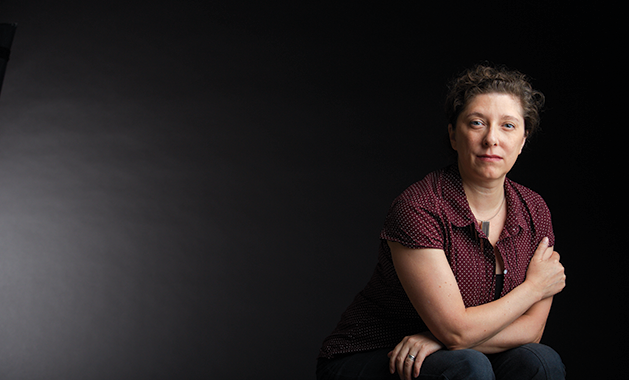
University of Minnesota researcher Lauren Martin is happy to make her home in Edina. “It’s a peaceful retreat,” she says. A lot of Edina residents would echo that sentiment, but Martin has more reason than most to appreciate her suburban sanctuary.
Martin is the director of research for the Robert J. Jones Urban Research and Outreach-Engagement Center and is affiliated faculty in the Humphrey School of Public Affairs. Her research focuses on sex trafficking. Since 2005, Martin has led a series of research projects looking at sex trading and the world of people involved in the commercial sex trade.
“It’s a market that operates in the shadows,” Martin says. “It’s fueled by exploitation.”
Martin hopes her work can bring awareness to the vulnerable position of people involved in the sex trade. The stigma of the work means that the voices and concerns of those involved aren’t generally heard by larger society. Because they work in the shadows, they have few legal safeguards and protections—making them easily subject to coercion and violence.
“I work hard with my whole team not to judge,” Martin says. “We want to talk to people involved in sex work and find out their concerns from their perspective.”
That means bringing the entire market out of the shadows—including the customers. Martin’s current research project has her team interviewing police officers, social workers and other professionals who know a lot about this underworld. The current research will provide a better sense of who the purchasers of sex are so that she can begin to track who creates the demand that drives the market.Martin first came in contact with this subject when she worked with a neighborhood association in North Minneapolis while finishing her Ph.D. dissertation in 2004. Prostitution was a significant problem in many of those neighborhoods, and community organizations were trying various kinds of engagement to reach out to people in the commercial sex trade.
“I got to know some of the women working as prostitutes in the neighborhood,” Martin says, “and it changed me as a person.” Since then, this has been her life’s work.
Recently Martin was involved in testimony before the Minneapolis City Council by women who work in strip clubs in the city.
“This a legal industry,” she says. “The people who work in that industry should have basic workplace protections.”
The women who testified talked about working in filthy conditions. Clubs are rarely inspected. Councilmembers were surprised to hear how basic sanitation is ignored by club owners. And that, of course, is literally just the surface of the problems strip-club workers face. Once again, the shadowy and stigmatized nature of the work leaves workers completely vulnerable to exploitation.The work Martin is doing may not be something the rest of us want to think about, but she isn’t going to let us turn a blind eye.
“It’s important that the broader society understand the exploitation and violence these workers are subjected to…without awareness there is no opportunity for protection.”
To learn more about Martin's research, click here.









